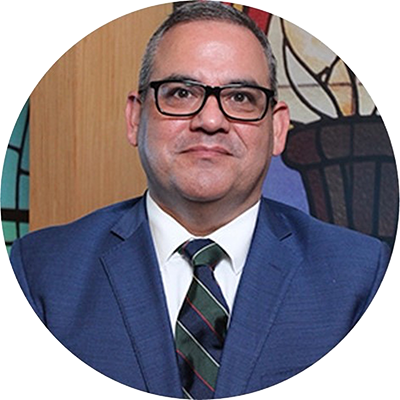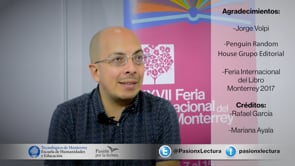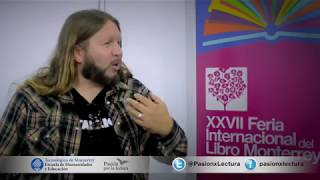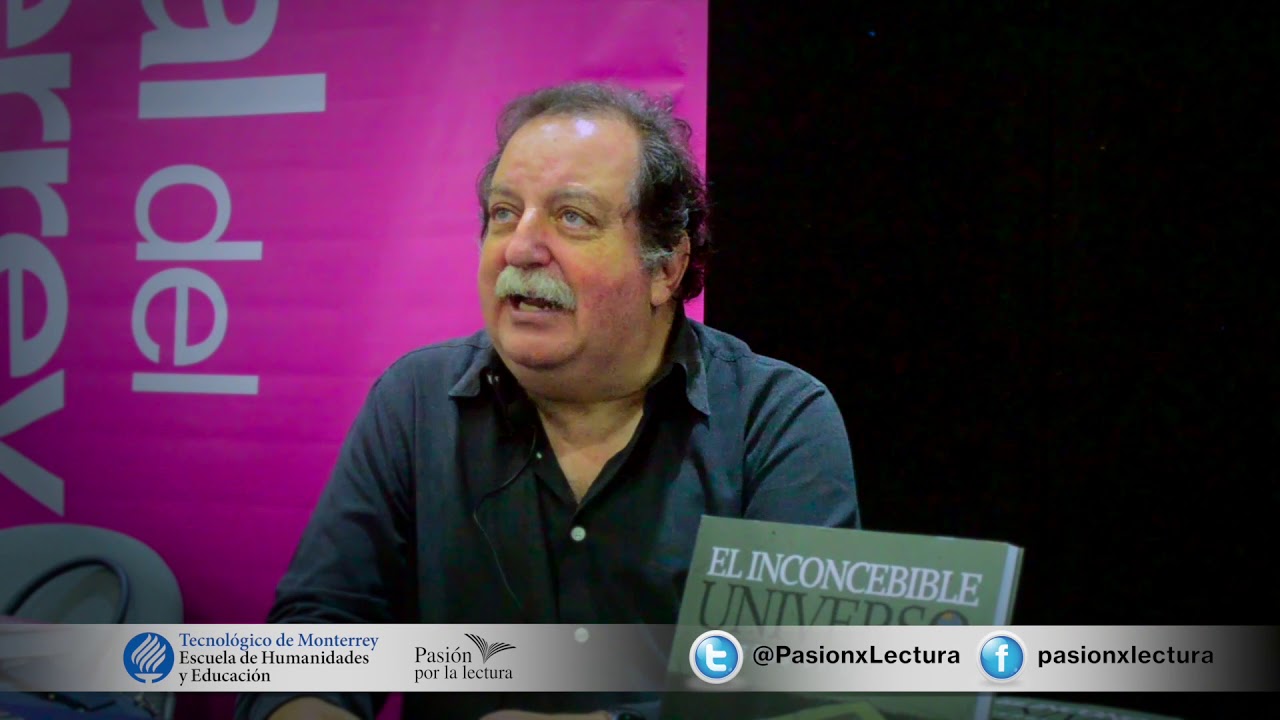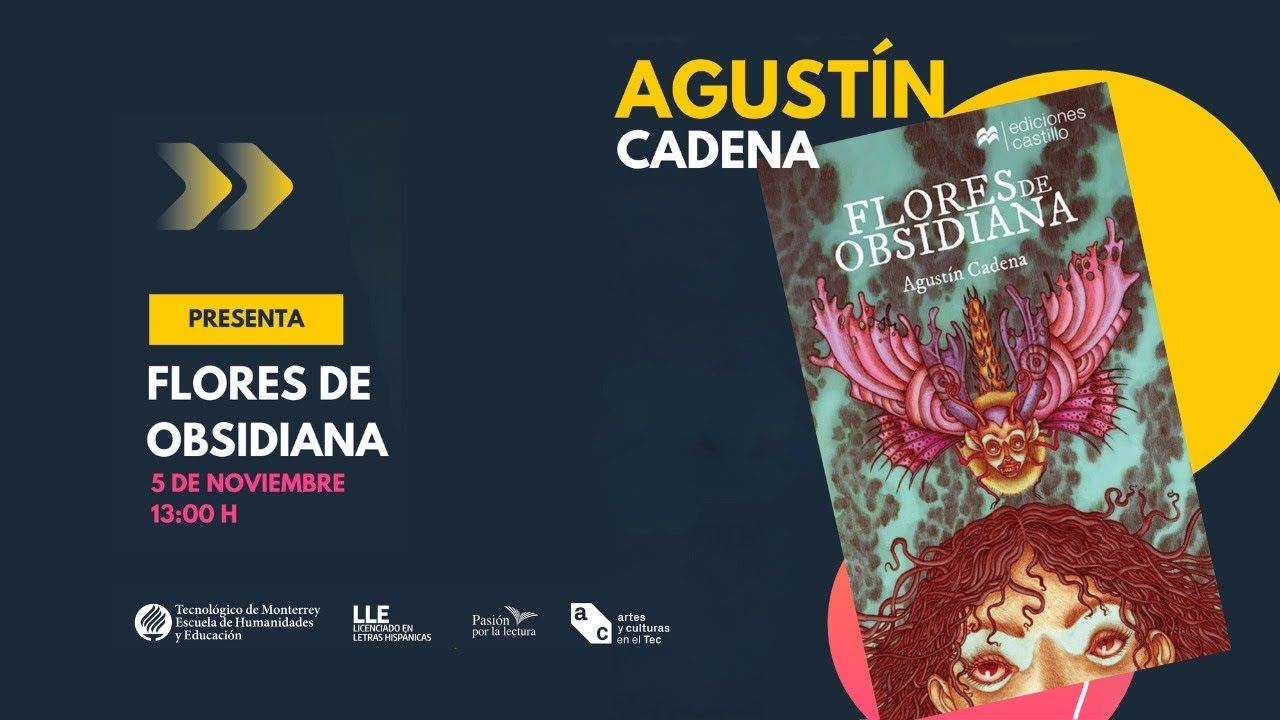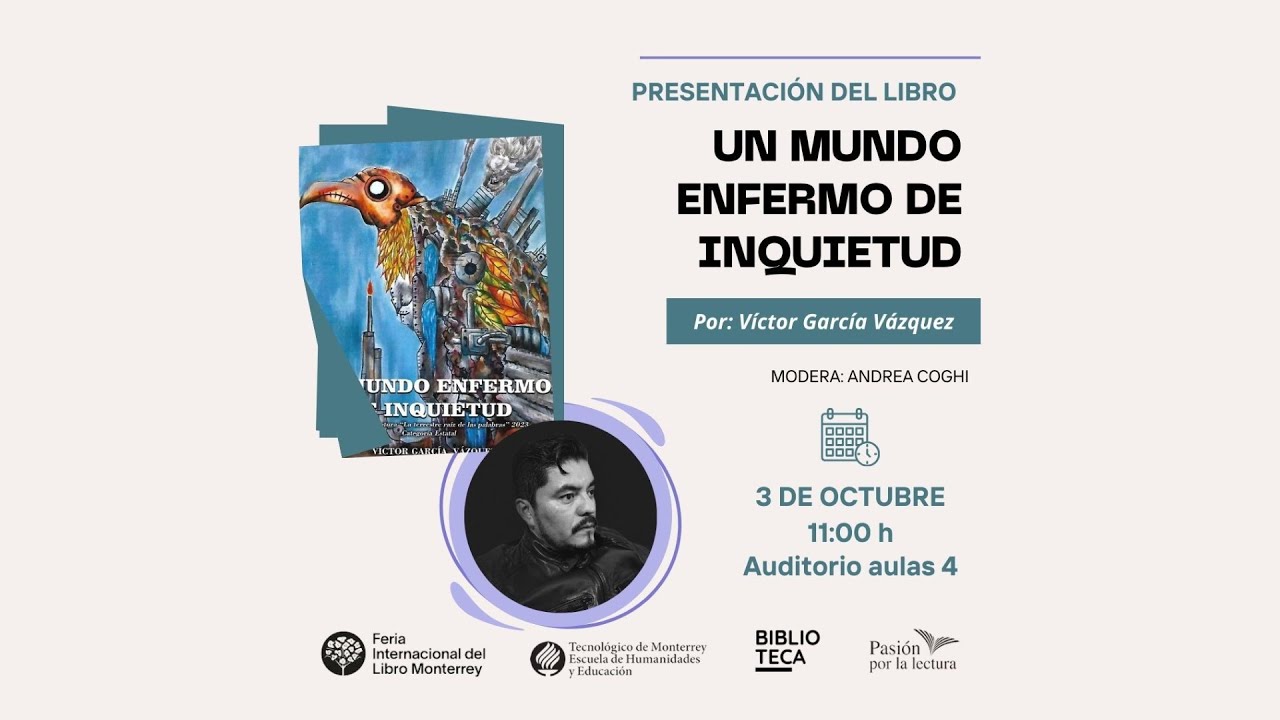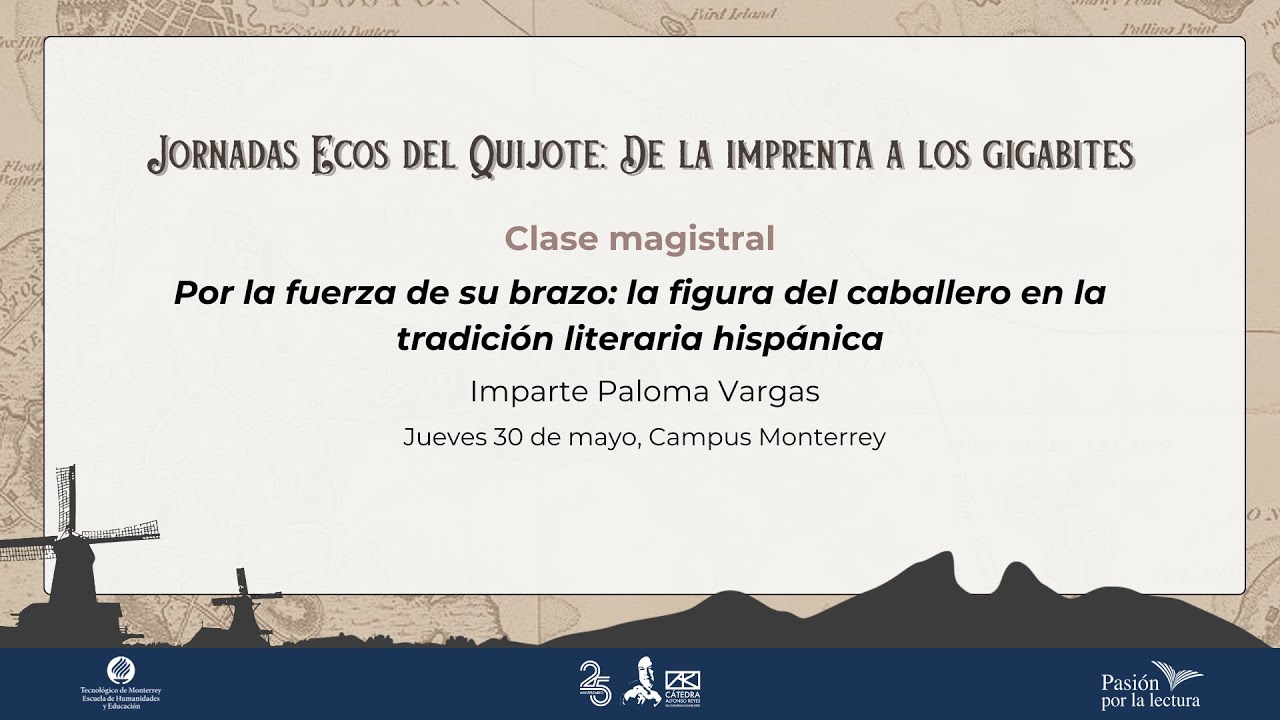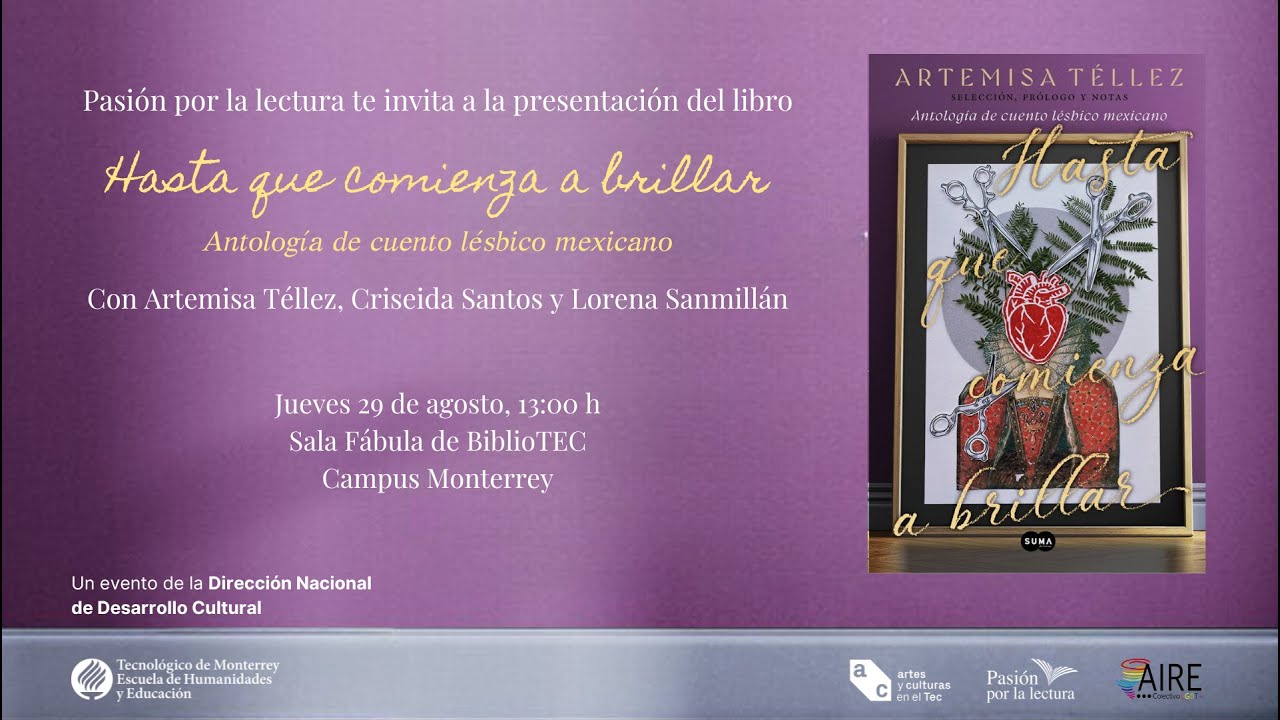
Buscar


We come together to solve one of Mexico's major public health challenges: Obesity.
Obesity is a pandemic we have faced for a long time. It is a global problem affecting individuals, families, and countless communities everywhere. In Mexico and the world, obesity leads to serious health problems, including cardiovascular diseases, some types of cancer, and diabetes. In addition to its impact on health, obesity bears social and economic costs.
Consult the anual report of the Institute for Research on Obesity to learn about our achievements and notable projects.
The Institute generates forefront knowledge through scientific rigor and analysis, developing ideas and innovative solutions to the problem of obesity through inter- and trans-disciplinary work and creating scientific-technological companies to improve the health and well-being of people and society.
The Institute for Obesity Research at the Tecnológico de Monterrey is a non-profit initiative aimed at generating scientific knowledge, ideas, and innovative solutions for the complex health issue of obesity.
The complexity of this chronic disease, obesity, requires interdisciplinary work to beneficially impact the quality of life, health, and well-being of individuals with overweight and obesity. Additionally, it involves influencing social actions, population health, and public policy to prevent and combat obesity, reduce stigma, and facilitate education about obesity.
The interdisciplinary nature of the Institute allows for multiple collaborative initiatives within the institution and externally, strengthening the research lines of our investigators and expanding the applicability of research to international initiatives.
The Institute meets and exceeds international standards of research ethics. This not only allows the use of its own financial resources but also enables competition for obtaining resources from national and international external sources through various schemes, including competitions, joint developments, and philanthropy. These resources are utilized for research, training highly qualified human resources, and developing solutions for obesity and its complications.
The Institute for Obesity Research at Tecnológico de Monterrey serves as a catalyst for significant advancements in understanding and treating obesity. Its commitment to interdisciplinary collaboration with global impact positions it as a leader in the fight against one of the most urgent health challenges of our time.
Discover
Generation of knowledge for healthy eating and the prevention and reduction of obesity
Develop
Development of therapies, procedures, and devices to combat obesity and metabolic diseases
Enable
Facilitator of science-technology-based companies that promote metabolic health
Support
Support for decision-making that builds healthier societies
Leadership team

Dr. Gerardo de Jesús García Rivas
Leader of the Experimental Medicine and Advanced Therapies Unit



Healthy Food Unit
Leader: Carmen Hernández Brenes
Objective
Seeks the development of foods that prevent and combat obesity and other comorbidities associated with metabolic syndrome. Develops and validates foods that prevent and combat obesity and other comorbidities associated with metabolic syndrome. It involves nutrigenomics, personalized feeding, and the development of ingredients to provide healthy and sustainable options to society.



Bioengineering and Medical Devices Unit
Leader: Omar Lozano García
Objective
Develops and optimizes bioengineering platforms to produce new commercial products focused on the early detection and prevention of metabolic disorders associated with obesity.



Integrative Biology Unit
Leader: Dr. Rocío Isabel Díaz de la Garza
Objective
Generates functional knowledge and cutting-edge technologies for diagnosing, preventing, and treating metabolic diseases and obesity by integrating a large, diverse amount of experimental data on individuals, populations, and their environments.
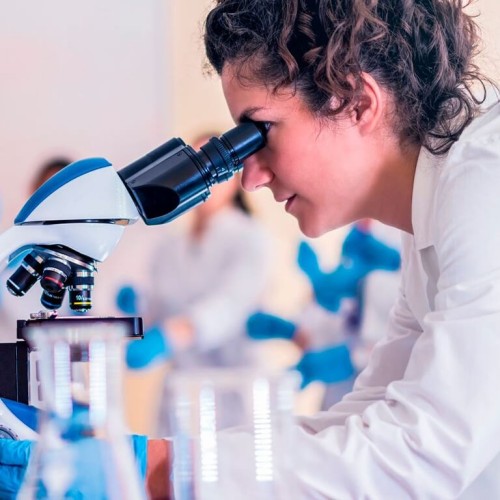


Experimental Medicine and Advanced Therapies Unit
Leader: Dr. Gerardo de Jesús García Rivas
Objective
Characterizes the cellular and molecular mechanisms that contribute to the development of metabolic diseases and obesity. Proposes and evaluates new experimental prevention and treatment therapies in preclinical models, which lay the foundations for clinical studies of patients with metabolic disease and obesity.



Public Health Policy Unit
Leader: Héctor Arreola Ornelas
Objective
Researches and analyzes the social, economic, and public policy factors that affect obesity and food, their impact on society and the economy, and actions that, from the fields of public policy, economics, and law, can contribute to reducing obesity and improving nutrition.
For its vision and structure: a unique institute of its kind.


We come together to solve one of Mexico's major public health challenges: Obesity.
Obesity is a pandemic we have faced for a long time. It is a global problem affecting individuals, families, and countless communities everywhere. In Mexico and the world, obesity leads to serious health problems, including cardiovascular diseases, some types of cancer, and diabetes. In addition to its impact on health, obesity bears social and economic costs.
Consult the anual report of the Institute for Research on Obesity to learn about our achievements and notable projects.
The Institute generates forefront knowledge through scientific rigor and analysis, developing ideas and innovative solutions to the problem of obesity through inter- and trans-disciplinary work and creating scientific-technological companies to improve the health and well-being of people and society.
The Institute for Obesity Research at the Tecnológico de Monterrey is a non-profit initiative aimed at generating scientific knowledge, ideas, and innovative solutions for the complex health issue of obesity.
The complexity of this chronic disease, obesity, requires interdisciplinary work to beneficially impact the quality of life, health, and well-being of individuals with overweight and obesity. Additionally, it involves influencing social actions, population health, and public policy to prevent and combat obesity, reduce stigma, and facilitate education about obesity.
The interdisciplinary nature of the Institute allows for multiple collaborative initiatives within the institution and externally, strengthening the research lines of our investigators and expanding the applicability of research to international initiatives.
The Institute meets and exceeds international standards of research ethics. This not only allows the use of its own financial resources but also enables competition for obtaining resources from national and international external sources through various schemes, including competitions, joint developments, and philanthropy. These resources are utilized for research, training highly qualified human resources, and developing solutions for obesity and its complications.
The Institute for Obesity Research at Tecnológico de Monterrey serves as a catalyst for significant advancements in understanding and treating obesity. Its commitment to interdisciplinary collaboration with global impact positions it as a leader in the fight against one of the most urgent health challenges of our time.
Discover
Generation of knowledge for healthy eating and the prevention and reduction of obesity
Develop
Development of therapies, procedures, and devices to combat obesity and metabolic diseases
Enable
Facilitator of science-technology-based companies that promote metabolic health
Support
Support for decision-making that builds healthier societies
Equipo de liderazgo

Dr. Gerardo de Jesús García Rivas
Leader of the Experimental Medicine and Advanced Therapies Unit



Unidad de Alimentos Saludables
liderada por la Dra. Carmen Hernández Brenes
Objetivo
Desarrollo y optimización de plataformas bioingenieriles para la producción de nuevos productos comerciales enfocados a la detección temprana y prevención de trastornos metabólicos asociados a obesidad.



Unidad de Bioingeniería y Dispositivos Médicos
liderada por el Dr. Omar Lozano García
Objetivo
Desarrollo y optimización de plataformas bioingenieriles para la producción de nuevos productos comerciales enfocados a la detección temprana y prevención de trastornos metabólicos asociados a obesidad.



Unidad de Biología Integrativa
liderada por la Dra. Rocío Isabel Díaz de la Garza
Objetivo
Generar conocimiento funcional y tecnologías de frontera para el diagnóstico, prevención y tratamiento de enfermedades metabólicas y obesidad por medio de la integración de gran cantidad y diversidad de datos experimentales en individuos, poblaciones y su entorno.



Unidad de Medicina Experimental y Terapias Avanzadas
liderada por el Dr. Gerardo de Jesús García Rivas
Objetivo
Caracterizar los mecanismos celulares y moleculares que contribuyen al desarrollo de enfermedades metabólicas y la obesidad. Proponer y evaluar nuevas terapias experimentales de prevención y tratamiento en modelos preclínicos, que sentarán las bases para la conducción de estudios clínicos con pacientes con enfermedad metabólica y obesidad.



Unidad de Políticas Públicas en Salud
liderada por el Dr. Héctor Arreola Ornelas
Objetivo
Investigación y análisis sobre los factores sociales, económicos y de política pública que inciden sobre la obesidad y la alimentación, su impacto sobre la sociedad y la economía, así como las acciones que desde el ámbito de la política pública, la economía y el derecho, puedan contribuir a reducir la obesidad y mejorar la alimentación.
For its vision and structure: a unique institute of its kind.


Researches and analyzes the social, economic, and public policy factors that affect obesity and food, their impact on society and the economy.
What does this unit do?
The Public Health Policy Unit researches and analyzes the social, economic, legal, and public policy factors that affect obesity and diet. It also studies the impact of this problem on society and the economy and analyzes the actions that, from the fields of public policy, economics, and law, can contribute to reducing obesity and improving nutrition.
Likewise, this unit contributes to the public debate with information, analyses, and proposals aimed at expanding knowledge about the challenge of obesity and its social and economic implications. It formulates better policies and public programs from various areas to face the challenge and analyzes the best international practices in the field to know how they could be adapted to the Mexican context. It also works closely with the other units of the Institute so that the research they carry out also impacts public policies and debate.
The importance of Public Policies
Obesity has significant social and economic determinants beyond genetic or medical factors. People's food choices and lifestyles, including physical activity, depend on many factors, such as the environment in which they live, the infrastructure and spaces available for active living, access to and prices of healthy food, the information they have about the factors that contribute to a healthy lifestyle and diet, including what they learn in school and advertising to which they are subject, among others.
Public policies and legislation, beyond what is related to the health sector, have great relevance to the prevalence of obesity. For example, educational policy affects the training of people related to lifestyles and healthy eating, allowing for better decisions. Economic and trade policy and agricultural policy affect the availability of food and its cost. Fiscal policy contributes to final food prices and people's decisions about food consumption. Labor policy impacts the working environment; urban planning affects public spaces, infrastructure, and mobility, which affect people's physical activities.
The prevalence of obesity has a lot to do with public policies in multiple sectors besides health; thus, actions to reduce the prevalence of overweight and obesity correspond to many areas of public policy, not just the health sector.
Obesity and its context
Being overweight and obesity are global problems. In almost all countries, its incidence has been growing for five decades. In Mexico, 71 percent of the population and three out of 10 children are overweight. Obesity is a non-communicable condition, such as cardiovascular disease, diabetes, and cancer. In addition to directly impacting people's physical health, it has implications for their mental health, educational attainment, job performance, and income. According to the OECD, for example, children with obesity have lower educational attainment, are more absent, are less likely to complete high school, and are more likely to suffer bullying and harassment than children with a healthy weight, with long-term implications including lower future incomes and challenges in reducing poverty and inequality and promoting social mobility. For adults, obesity can lead to greater absenteeism and lower productivity in the labor market due to its health consequences.
Moreover, obesity also has social and economic effects beyond those who suffer from this condition. It has a high cost in health services for the care of diseases associated with obesity. In addition, overweight and obese people use health services more and require more surgeries. This implies allocating large amounts of resources to them instead of to other health priorities or initiatives for the social and economic development of the country. It affects public finances and household spending; in Mexico, health costs are significantly high compared to other countries. Obesity and being overweight also affect people's work productivity. In addition to all the above, this problem can reduce countries' GDP. In Mexico, the impact is elevated; it is the highest among OECD countries, reaching up to 5.3% of GDP.
* About Research Professors: They are principal investigators (PIs) who dedicate 75% of their time to research and 25% of their time to faculty (teaching) activities in the school they are assigned at Tecnológico de Monterrey (in IOR’s case, either the School of Medicine, School of Engineering, or School of Government).

Dr. Héctor Arreola Ornelas
Unit leader. Research Professor
Specialist in health systems, health economics and public policy.
Get to know his work

Dr. Paola Abril Campos Rivera
Research Professor
PhD in Public Health. Specialist in design and implementation of public policies for health.
Get to know her work

Dr. David Contreras Loya
Research Professor
PhD in Health Policy. Specializes in health economics, management and organizations, and quantitative methods for causal inference.
Get to know her work
La carga del sobrepeso y la obesidad en México de 1990 a 2021
Carga atribuible a factores de riesgo en México, 1990-2021. Resumen de los hallazgos del estudio Global Burden of Disease 2021
Confronting Inequality in Health: Tackling Diabetes and Hypertension in Mexico’s Landscape of Socioeconomic Disparities
Setbacks in the quest for universal health coverage in Mexico: Polarized politics, policy upheaval, and pandemic disruption
Non-pharmaceutical interventions to combat COVID-19 in the americas described through daily sub-national data
Education in Mexico and technological public policy for developing complex thinking in the digital era: A model for technology management
The effect of public policy on high BMI trends of Mexican children: an interrupted time series analysis
Learning from Latin America: Coordinating Policy Responses across National and Subnational Levels to Combat COVID-19
Engagement and Social Impact in Tech-Based Citizen Science Initiatives for Achieving the SDGs: A Systematic Literature Review with a Perspective on Complex Thinking
Latin America needs evidence-supported health-care policies
- The feminization of medicine in Latin America: ‘More-the-merrier’ will not beget gender equity or strengthen health systems. The Lancet Regional Health – Americas. 2022
- Closing the global pain divide: balancing access and excess. The Lancet Public Health. 2022
Engagement and Social Impact in Tech-Based Citizen Science Initiatives for Achieving the SDGs: A Systematic Literature Review with a Perspective on Complex Thinking

Researches and analyzes the social, economic, and public policy factors that affect obesity and food, their impact on society and the economy.
What does this unit do?
The Public Health Policy Unit researches and analyzes the social, economic, legal, and public policy factors that affect obesity and diet. It also studies the impact of this problem on society and the economy and analyzes the actions that, from the fields of public policy, economics, and law, can contribute to reducing obesity and improving nutrition.
Likewise, this unit contributes to the public debate with information, analyses, and proposals aimed at expanding knowledge about the challenge of obesity and its social and economic implications. It formulates better policies and public programs from various areas to face the challenge and analyzes the best international practices in the field to know how they could be adapted to the Mexican context. It also works closely with the other units of the Institute so that the research they carry out also impacts public policies and debate.
The importance of Public Policies
Obesity has significant social and economic determinants beyond genetic or medical factors. People's food choices and lifestyles, including physical activity, depend on many factors, such as the environment in which they live, the infrastructure and spaces available for active living, access to and prices of healthy food, the information they have about the factors that contribute to a healthy lifestyle and diet, including what they learn in school and advertising to which they are subject, among others.
Public policies and legislation, beyond what is related to the health sector, have great relevance to the prevalence of obesity. For example, educational policy affects the training of people related to lifestyles and healthy eating, allowing for better decisions. Economic and trade policy and agricultural policy affect the availability of food and its cost. Fiscal policy contributes to final food prices and people's decisions about food consumption. Labor policy impacts the working environment; urban planning affects public spaces, infrastructure, and mobility, which affect people's physical activities.
The prevalence of obesity has a lot to do with public policies in multiple sectors besides health; thus, actions to reduce the prevalence of overweight and obesity correspond to many areas of public policy, not just the health sector.
Obesity and its context
Being overweight and obesity are global problems. In almost all countries, its incidence has been growing for five decades. In Mexico, 71 percent of the population and three out of 10 children are overweight. Obesity is a non-communicable condition, such as cardiovascular disease, diabetes, and cancer. In addition to directly impacting people's physical health, it has implications for their mental health, educational attainment, job performance, and income. According to the OECD, for example, children with obesity have lower educational attainment, are more absent, are less likely to complete high school, and are more likely to suffer bullying and harassment than children with a healthy weight, with long-term implications including lower future incomes and challenges in reducing poverty and inequality and promoting social mobility. For adults, obesity can lead to greater absenteeism and lower productivity in the labor market due to its health consequences.
Moreover, obesity also has social and economic effects beyond those who suffer from this condition. It has a high cost in health services for the care of diseases associated with obesity. In addition, overweight and obese people use health services more and require more surgeries. This implies allocating large amounts of resources to them instead of to other health priorities or initiatives for the social and economic development of the country. It affects public finances and household spending; in Mexico, health costs are significantly high compared to other countries. Obesity and being overweight also affect people's work productivity. In addition to all the above, this problem can reduce countries' GDP. In Mexico, the impact is elevated; it is the highest among OECD countries, reaching up to 5.3% of GDP.
* Acerca de Profesores Investigadores: Son investigadores principales que dedican el 75% de su tiempo a la investigación y el 25% a actividades de la facultad (docencia) en la escuela a la que están afiliados en el Tecnológico de Monterrey (en el caso del IOR, ya sea a la Escuela de Medicina, la Escuela de Ingeniería y Ciencias o la Escuela de Gobierno y Transformación Pública)

Dr. Héctor Arreola Ornelas
Unit leader. Research Professor
Specialist in health systems, health economics and public policy.
Get to know his work

Dr. Paola Abril Campos Rivera
Research Professor
PhD in Public Health. Specialist in design and implementation of public policies for health.
Get to know her work

Dr. David Contreras Loya
Research Professor
PhD in Health Policy. Specializes in health economics, management and organizations, and quantitative methods for causal inference.
Get to know her work
La carga del sobrepeso y la obesidad en México de 1990 a 2021
Carga atribuible a factores de riesgo en México, 1990-2021. Resumen de los hallazgos del estudio Global Burden of Disease 2021
Confronting Inequality in Health: Tackling Diabetes and Hypertension in Mexico’s Landscape of Socioeconomic Disparities
Setbacks in the quest for universal health coverage in Mexico: Polarized politics, policy upheaval, and pandemic disruption
Non-pharmaceutical interventions to combat COVID-19 in the americas described through daily sub-national data
Education in Mexico and technological public policy for developing complex thinking in the digital era: A model for technology management
The effect of public policy on high BMI trends of Mexican children: an interrupted time series analysis
Learning from Latin America: Coordinating Policy Responses across National and Subnational Levels to Combat COVID-19
Engagement and Social Impact in Tech-Based Citizen Science Initiatives for Achieving the SDGs: A Systematic Literature Review with a Perspective on Complex Thinking
Latin America needs evidence-supported health-care policies
- The feminization of medicine in Latin America: ‘More-the-merrier’ will not beget gender equity or strengthen health systems. The Lancet Regional Health – Americas. 2022
- Closing the global pain divide: balancing access and excess. The Lancet Public Health. 2022
Engagement and Social Impact in Tech-Based Citizen Science Initiatives for Achieving the SDGs: A Systematic Literature Review with a Perspective on Complex Thinking

Seeks the development of foods that prevent and combat obesity and other comorbidities associated with metabolic syndrome.
What does this unit do?
It selects the varieties of plant, animal, and single-celled species relevant to a diverse, healthy, and sustainable diet. Additionally, the interactions among nutrients and other chemical compounds during food processing, storage, and digestion are validated to design better foods for different populations.
Healthy Food
In Mexico, healthy food production is very variable due to the wide range of climatic conditions and migratory movements that have occurred and continue to occur in the national territory. On the one hand, traditional production systems focus on the diversity of vegetable crops and collecting local fruits and seeds that encourage a diverse diet. On the other hand, in some regions of the country, there is a greater degree of technology to increase the yield and quality of food, advancing the fulfillment of Sustainable Development Goal #2 (SDG 2): zero hunger. Finding a balance in these approaches would move us toward fulfilling SDG 12: Responsible production and consumption.
Your food is your medicine
For centuries, it has been recognized that the consumption of healthy foods has a close relationship with good health in the present and future. Today there is a wealth of scientific evidence supporting the prevention of non-communicable diseases.
Hippocrates' phrase "Let your food be your medicine and your medicine your food" leads to three grand challenges:
- How to design food for population groups already suffering from certain chronic-degenerative diseases?
- How to design foods that help prevent these diseases?
- Understanding the reactions between a food's components and an individual's state of health
Currently, there are advances in understanding nutritional needs and the relevance of consuming antioxidant compounds, immunostimulants, and other beneficial health effects, but further research is required to support each individual to make the best choice based on their habits, customs, traditions, and specific needs. That is one of the challenges of this unit.
* About Research Professors; They are principal investigators (PIs) who dedicate 75% of their time to research and 25% of their time to faculty (teaching) activities in the school they are assigned at Tecnológico de Monterrey (in IOR’s case, either the School of Medicine, School of Engineering, or School of Government).

Dr. Carmen Hernández Brenes
Unit leader. Research Professor
Applied Metabolomics for Better Nutrition and Health.
Get to know her work
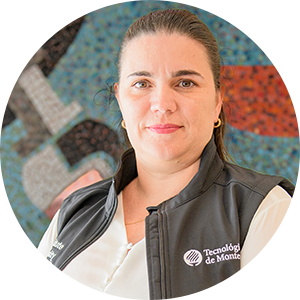
Dr. Marilena Antunes Ricardo
Research Professor
Characterization of phytochemicals in plant matrices for the development of health foods with immunoeoeutical and/or cosmetic potential.
Get to know her work

Dr. Anayansi Escalante Aburto
Research Professor
Characterization of nutraceutical foods of plant origin. Nutrition, eating habits, and health.
Get to know her work

Dr. Iván Andrés Luzardo Ocampo
Research Professor
Functional foods based on cereals and legumes. In vitro, ex vivo, in vivo, and in silico approaches to study the effect of food matrices and metabolites in models of inflammation and obesity.
Get to know her work
Essential Oils: Recent Advances on Their Dual Role as Food Preservatives and Nutraceuticals against the Metabolic Syndrome
The Role of Probiotics in Dairy Foods and Strategies to Evaluate Their Functional Modifications
Effect of the Enzymatic Treatment of Phenolic-Rich Pigments from Purple Corn (Zea mays L.): Evaluation of Thermal Stability and Alpha-Glucosidase Inhibition
In vitro Evaluation of Anti-Inflammatory Activity of "Habanero" Chili Pepper (Capsicum chinense) Seeds Extracts Pretreated with Cellulase
Immunomodulatory and Antioxidant Effects of Spray-Dried Encapsulated Kale Sprouts after In Vitro Gastrointestinal Digestion
Consumer perception of insects as food: Mexico as an example of the importance of studying socio-economic and geographical differences for decision-making in food development
Fighting Obesity-Related Micronutrient Deficiencies through Biofortification of Agri-Food Crops with Sustainable Fertilization Practices
Biopolymer nanoparticles: a strategy to enhance stability, bioavailability, and biological effects of phenolic compounds as functional ingredients
Challenges and Strategies for Topical and Transdermal Delivery of Bioactive Peptides
Engineering and Evaluation of Forcespun Gelatin Nanofibers as an Isorhamnetin Glycosides Delivery System

Seeks the development of foods that prevent and combat obesity and other comorbidities associated with metabolic syndrome.
What does this unit do?
It selects the varieties of plant, animal, and single-celled species relevant to a diverse, healthy, and sustainable diet. Additionally, the interactions among nutrients and other chemical compounds during food processing, storage, and digestion are validated to design better foods for different populations.
Healthy Food
In Mexico, healthy food production is very variable due to the wide range of climatic conditions and migratory movements that have occurred and continue to occur in the national territory. On the one hand, traditional production systems focus on the diversity of vegetable crops and collecting local fruits and seeds that encourage a diverse diet. On the other hand, in some regions of the country, there is a greater degree of technology to increase the yield and quality of food, advancing the fulfillment of Sustainable Development Goal #2 (SDG 2): zero hunger. Finding a balance in these approaches would move us toward fulfilling SDG 12: Responsible production and consumption.
Your food is your medicine
For centuries, it has been recognized that the consumption of healthy foods has a close relationship with good health in the present and future. Today there is a wealth of scientific evidence supporting the prevention of non-communicable diseases.
Hippocrates' phrase "Let your food be your medicine and your medicine your food" leads to three grand challenges:
- How to design food for population groups already suffering from certain chronic-degenerative diseases?
- How to design foods that help prevent these diseases?
- Understanding the reactions between a food's components and an individual's state of health
Currently, there are advances in understanding nutritional needs and the relevance of consuming antioxidant compounds, immunostimulants, and other beneficial health effects, but further research is required to support each individual to make the best choice based on their habits, customs, traditions, and specific needs. That is one of the challenges of this unit.
* Acerca de Profesores Investigadores: Son investigadores principales que dedican el 75% de su tiempo a la investigación y el 25% a actividades de la facultad (docencia) en la escuela a la que están afiliados en el Tecnológico de Monterrey (en el caso del IOR, ya sea a la Escuela de Medicina, la Escuela de Ingeniería y Ciencias o la Escuela de Gobierno y Transformación Pública)

Dr. Carmen Hernández Brenes
Unit leader. Research Professor
Applied Metabolomics for Better Nutrition and Health.
Get to know her work

Dr. Marilena Antunes Ricardo
Research Professor
Characterization of phytochemicals in plant matrices for the development of health foods with immunoeoeutical and/or cosmetic potential.
Get to know her work

Dr. Anayansi Escalante Aburto
Research Professor
Characterization of nutraceutical foods of plant origin. Nutrition, eating habits, and health.
Get to know her work

Dr. Iván Andrés Luzardo Ocampo
Research Professor
Functional foods based on cereals and legumes. In vitro, ex vivo, in vivo, and in silico approaches to study the effect of food matrices and metabolites in models of inflammation and obesity.
Get to know her work
Essential Oils: Recent Advances on Their Dual Role as Food Preservatives and Nutraceuticals against the Metabolic Syndrome
The Role of Probiotics in Dairy Foods and Strategies to Evaluate Their Functional Modifications
Effect of the Enzymatic Treatment of Phenolic-Rich Pigments from Purple Corn (Zea mays L.): Evaluation of Thermal Stability and Alpha-Glucosidase Inhibition
In vitro Evaluation of Anti-Inflammatory Activity of "Habanero" Chili Pepper (Capsicum chinense) Seeds Extracts Pretreated with Cellulase
Immunomodulatory and Antioxidant Effects of Spray-Dried Encapsulated Kale Sprouts after In Vitro Gastrointestinal Digestion
Consumer perception of insects as food: Mexico as an example of the importance of studying socio-economic and geographical differences for decision-making in food development
Fighting Obesity-Related Micronutrient Deficiencies through Biofortification of Agri-Food Crops with Sustainable Fertilization Practices
Biopolymer nanoparticles: a strategy to enhance stability, bioavailability, and biological effects of phenolic compounds as functional ingredients
Challenges and Strategies for Topical and Transdermal Delivery of Bioactive Peptides
Engineering and Evaluation of Forcespun Gelatin Nanofibers as an Isorhamnetin Glycosides Delivery System
Encuentro EXATEC Negocios 2025 | Campus Hidalgo
Campus Hidalgo
Campus Hidalgo
Inicia
Termina
Dirigido a
Organiza
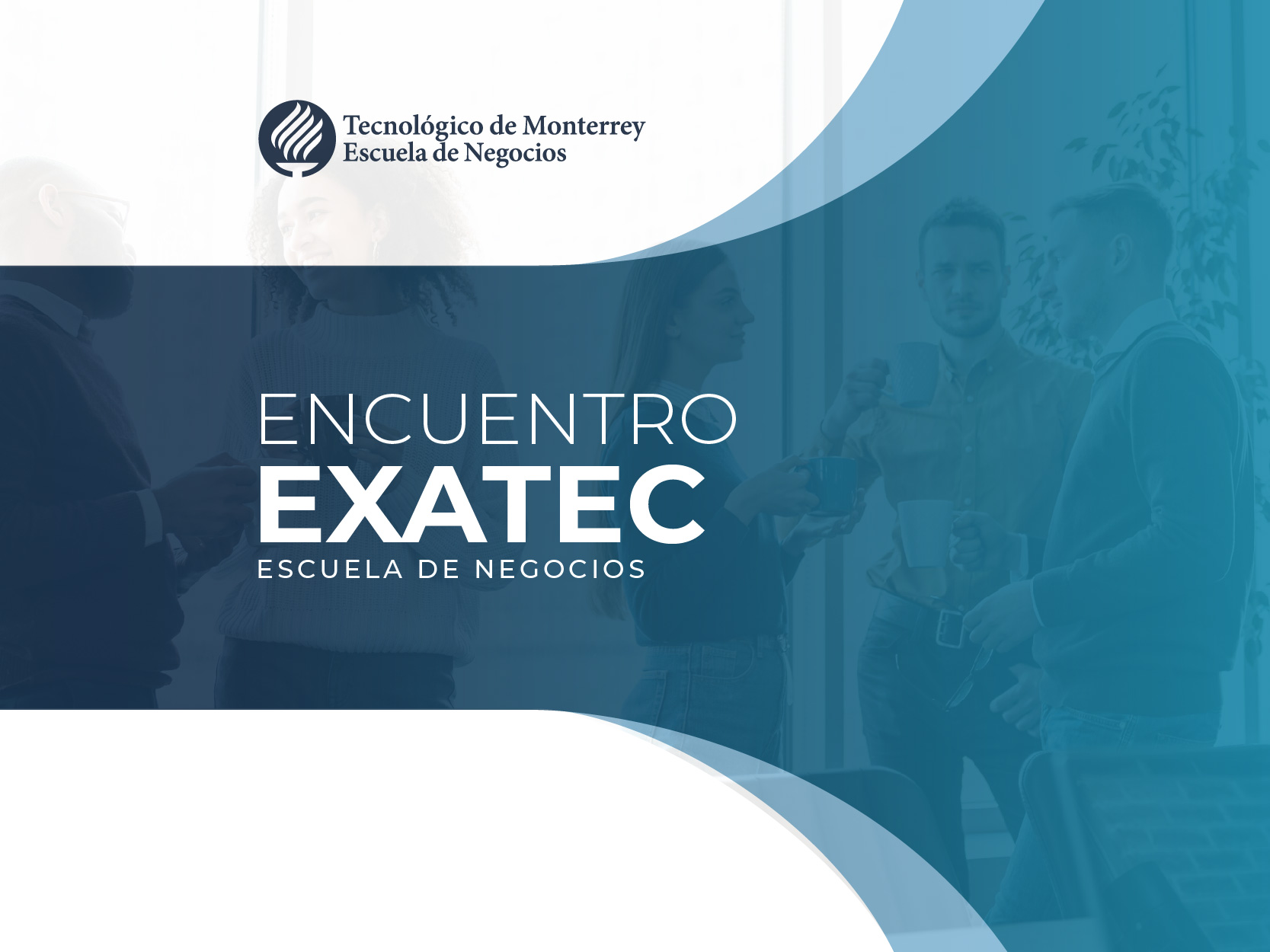
ENCUENTRO EXATEC, Escuela de Negocios
¡EN JUNIO LLEGA EL ENCUENTRO EXATEC NEGOCIOS! Un evento único donde tendrás la oportunidad de escuchar a destacados EXATEC en un panel sobre "Innovación disruptiva: redefiniendo los modelos de negocios". Prepárate para explorar las últimas tendencias y descubrir cómo la innovación está transformando el futuro empresarial. ¡No te lo puedes perder!
Fecha: Sábado 21 de junio del 2025
Horario: 9:00 h
Lugar: Salón de Congresos, SADCO
Regístrate aquí
Giselle Rentería
Passion for Reading is Tecnológico de Monterrey’s reading promotion and reader development program.
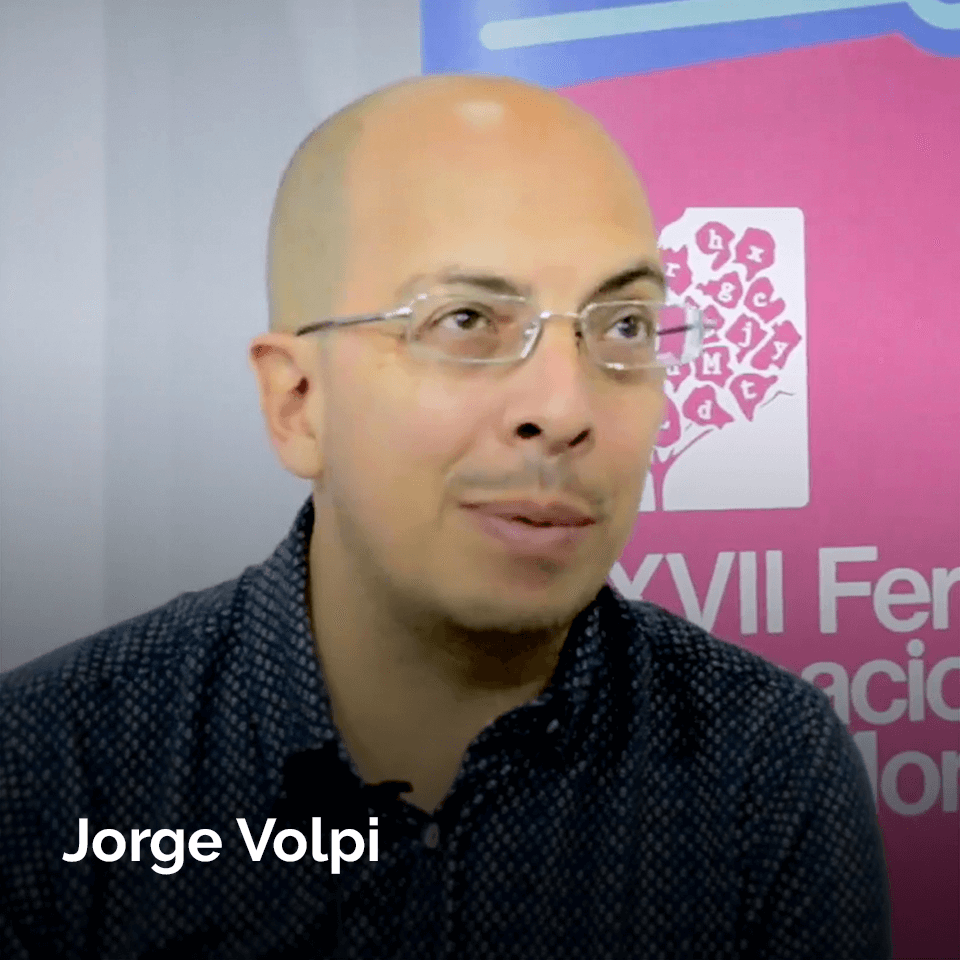
Jorge Volpi talks about the relationship between poetry and democracy.
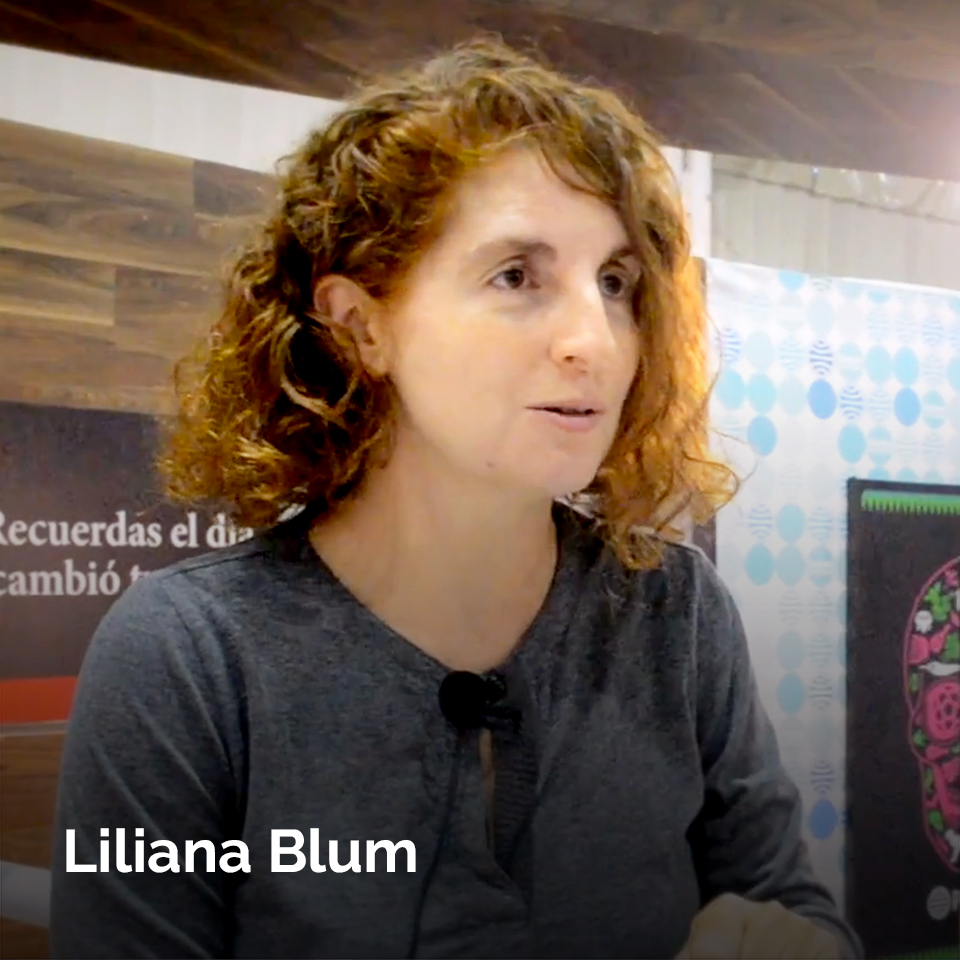
Writer Liliana V. Blum presents her book El monstruo pentápodo (The Pentapod Monster) and describes why literature helps to exorcize fears.
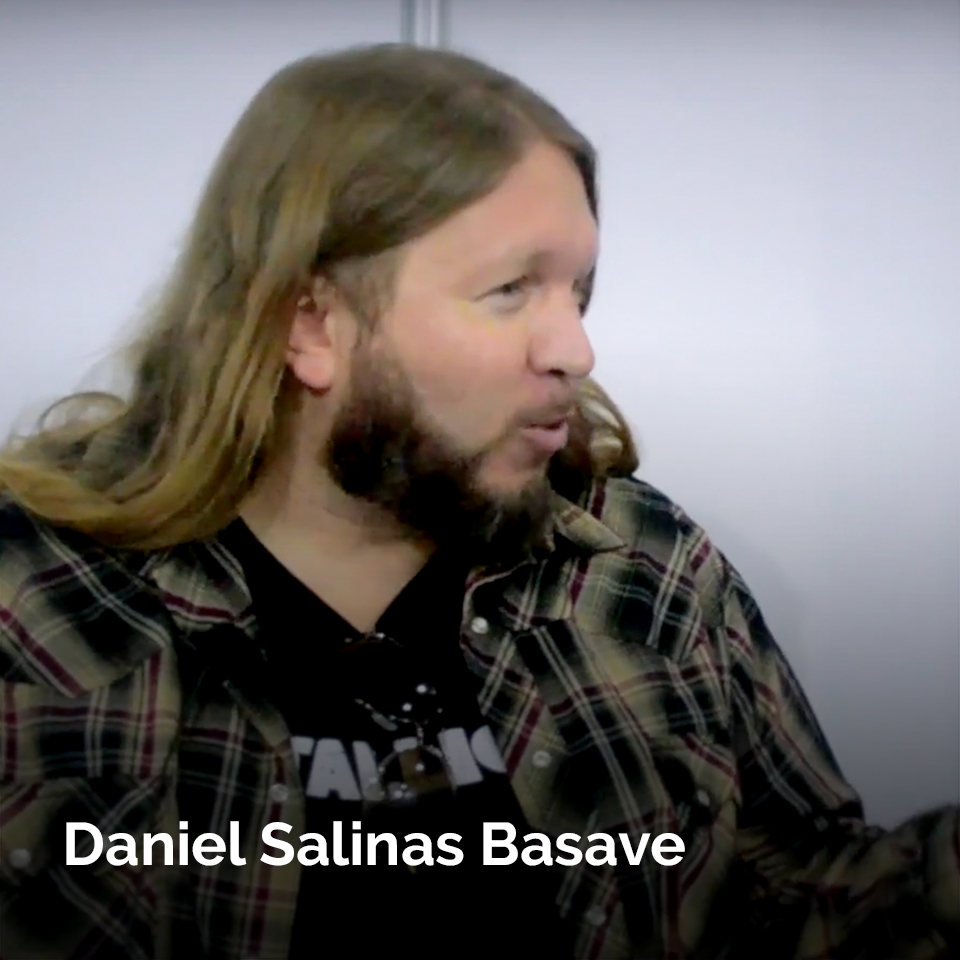
Writer Daniel Salinas Basave talks about relations between literary creation and journalism.
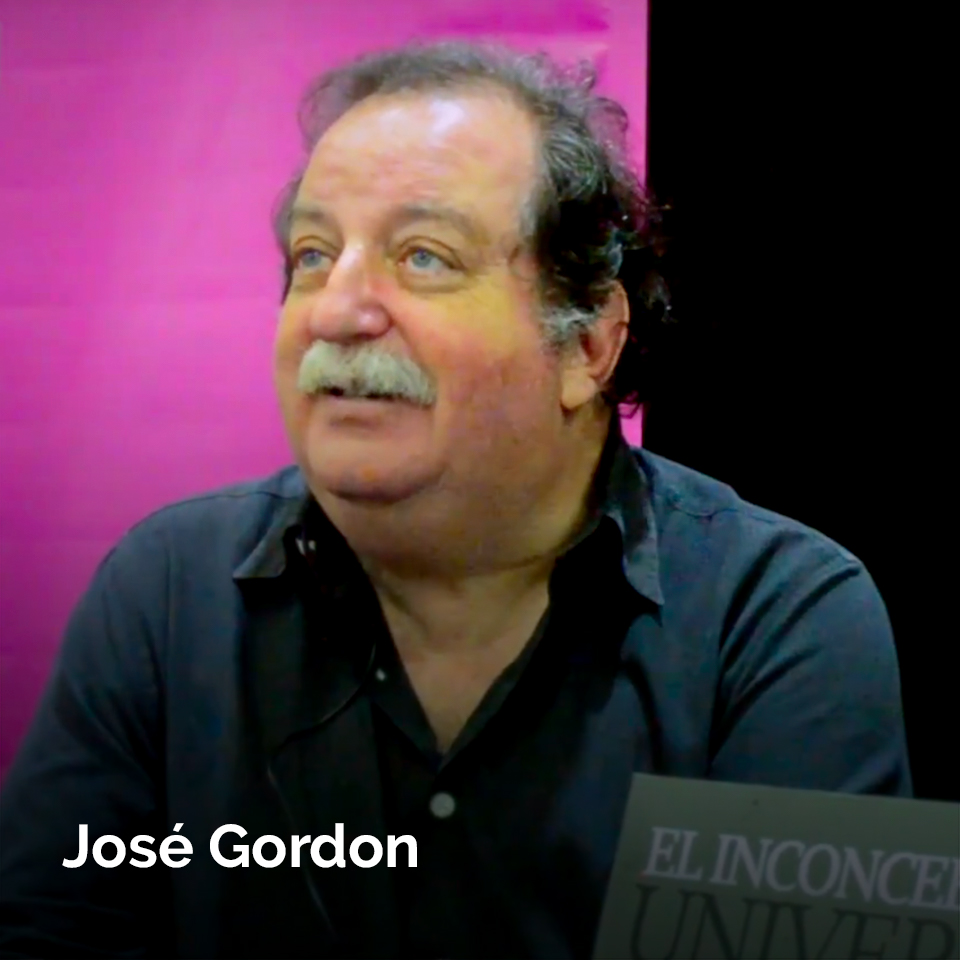
Writer José Gordon talks about relations between science and literature during the presentation of is book El inconcebible universe (The Unconceivable Universe).

Writer José Gordon talks about relations between science and literature during the presentation of is book El inconcebible universe (The Unconceivable Universe).
Passion for Reading is Tecnológico de Monterrey’s reading promotion and reader development program.

Pasión por la lectura en conjunto con la Licenciatura en Letras Hispánicas (LLE) comparten la presentación del libro "Flores de obsidiana" de Agustín Cadena.
Participan: Víctor Miguel Gutiérrez, Miriam Martínez y el autor.
Martes 5 de noviembre 2024, Virtual, Campus Monterrey.

Pasión por la lectura en conjunto con Cátedra Alfonso Reyes traen para ti la presentación de la obra "Usted no está aquí" de Bárbara Colio.
Pariticipan: Tanya Vázquez López y la autora.
Miércoles 2 de octubre 2024, Campus Monterrey.

Pasión por la lectura en conjunto con BiblioTEC y Feria Internacional del Libro Monterrey les comparten la presentación del libro "Un mundo enfermo de inquietud" de Víctor García Vázquez.
Participan: Andrea Coghi y el autor.
Jueves 3 de octubre 2024, Campus Puebla.

Pasión por la lectura presenta la clase magistral "Por la fuerza de su brazo: la figura del caballero en la tradición literaria hispánica"; la cual se llevó a cabo durante el marco de las Jornadas Ecos del Quijote: De la imprenta a los gigabites.
Imparte Paloma Vargas.
Jueves 30 de mayo, Campus Monterrey.

Pasión por la lectura en colaboración con AIRE - Asociación por la Inclusión, Respeto y Equidad del Tecnológico de Monterrey comparten la presentación del libro "Hasta que comienza a brillar. Antología de cuento lésbico mexicano" de Artemisa Téllez.
Participan: Criseida Santos, Lorena Sanmillán y la autora.
Jueves 29 de agosto 2024, Campus Monterrey.

